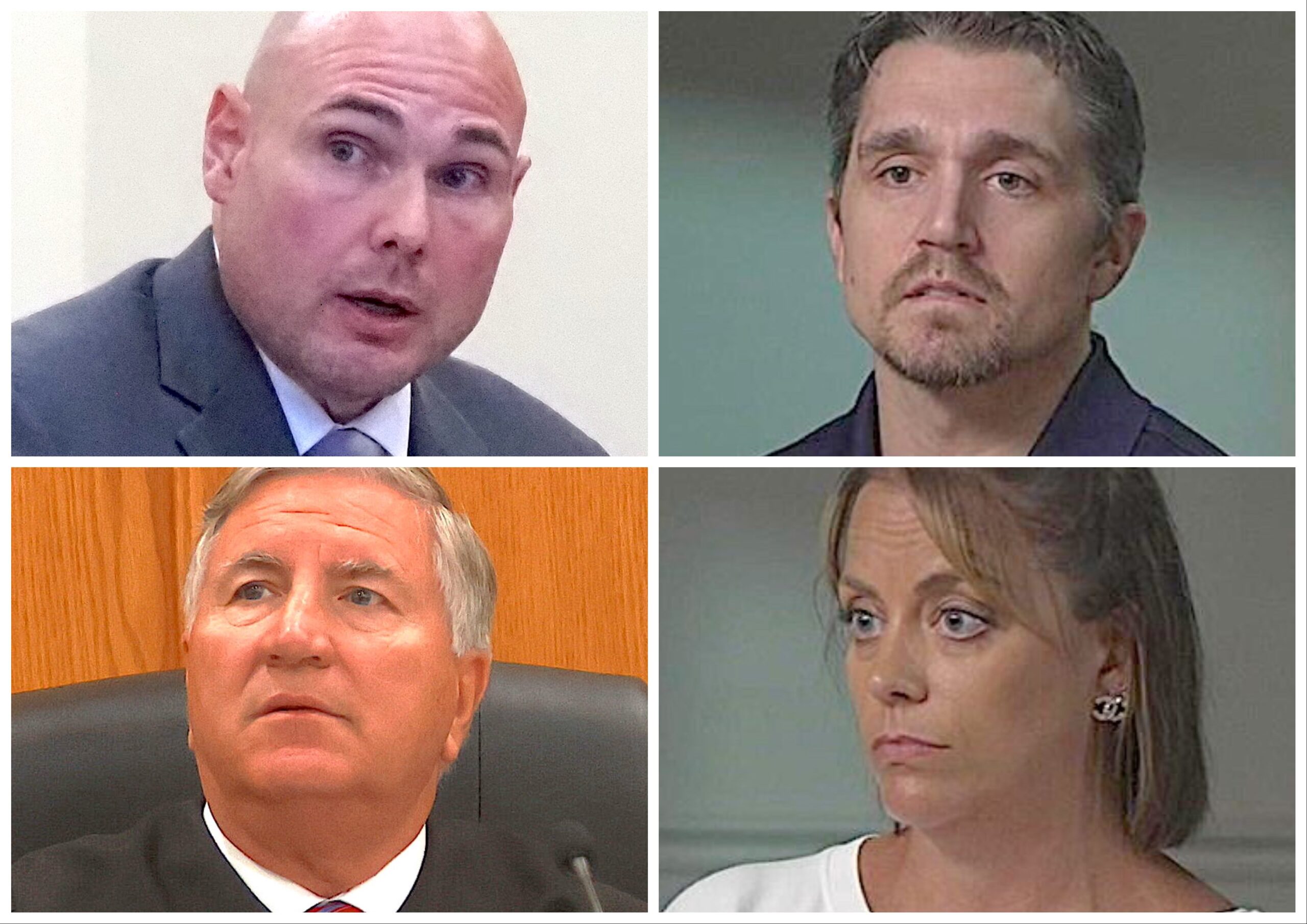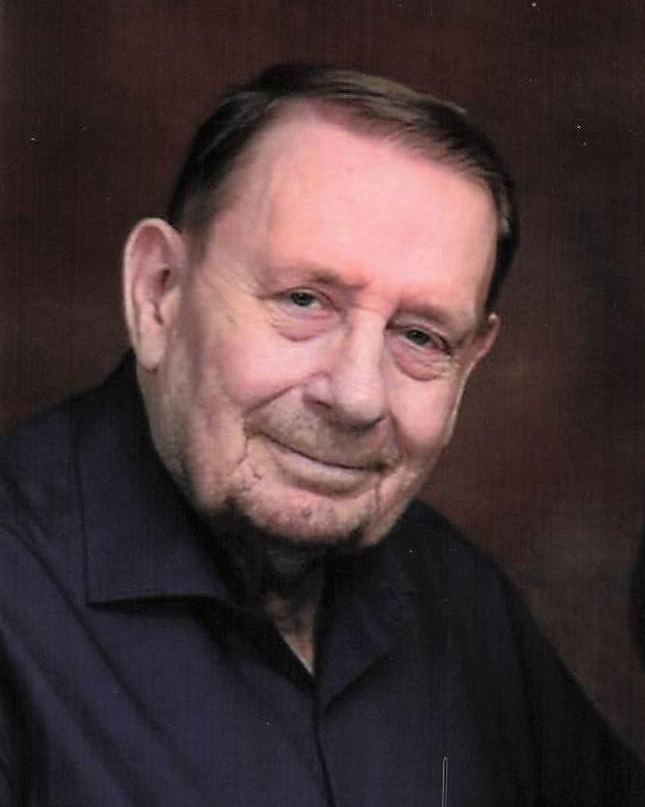Final brief filed in Bliefnick appeal; oral arguments to be heard this fall if panel of judges deems them necessary

QUINCY — The third and final brief in the appeal case for convicted murderer Tim Bliefnick was filed Thursday, July 25 in the Office of State Appellate Defender, Fourth District.
The 19-page brief was filed by Catherine Hart, deputy defender with the Office of the State Appellate Defender, Fourth District, and James H. Waller, assistant appellate defender, who represent Bliefnick.
Hart and Waller filed a 50-page brief, the first brief in the appeal process, on April 4. They argued many mistakes were made in Bliefnick’s May 2023 trial while asking for a new trial.
A 36-page brief prepared by Allison Paige Brooks, assistant appellate prosecutor with the Illinois office of the state’s attorneys appellate prosecutor, was filed Monday, July 15. Brooks listed several items of evidence in her argument that created what she called “an overwhelming circumstantial case.”
The brief filed July 25 by Hart and Waller was in reply to the Brooks brief.
Becky Bliefnick, who had three sons with Tim Bliefnick, was found by her father in her home on Feb. 23, 2023. She was found dead after being shot 14 times. She was 41.
Bliefnick was convicted in May 2023 of murdering his estranged wife and received three life sentences on August 11, 2023. He now is lodged in the Menard Correctional Center in Menard.
Now that all briefs are submitted, the appellate court typically will grant oral arguments, according to the Appellate Lawyers Association’s “Guide to Illinois Civil Appellate Procedure.”
The Fourth District Appellate Court is in Springfield. It hears cases appealed from trial courts in 41 counties from the following circuits:
- 7th (Greene, Jersey, Macoupin, Morgan, Sangamon & Scott);
- 8th (Adams, Brown, Calhoun, Cass, Mason, Menard, Pike & Schuyler);
- 9th (Fulton, Hancock, Henderson, Knox, McDonough & Warren);
- 10th (Marshall, Peoria, Putnam, Stark & Tazewell);
- 11th (Ford, Livingston, Logan, McLean & Woodford);
- 14th (Henry, Mercer, Rock Island & Whiteside);
- 15th (Carroll, Jo Daviess, Lee, Ogle & Stephenson);
- 17th (Boone & Winnebago).
A three-judge panel will be assigned in the next few weeks to the Bliefnick case. The panels are selected randomly by Carla Bender, clerk of the Fourth District Appellate Court. The Fourth District has 10 judges. They are:
- Peter Cavanaugh of Sangamon County
- Craig DeArmond of Vermillion County
- Eugene Doherty of Winnebago County
- Raylene Grischow from Sangamon County
- Thomas Harris from Logan County
- James Knecht from McLean County
- Amy Lannerd from Adams County
- Robert Steigmann from Champaign County
- David Vancil from Henderson County
- Kathryn Zenoff from Winnebago County
The appellate attorneys in a case typically do not learn which judges are assigned to a case until seven days before oral arguments are heard.
Once everything is filed, the appellate court judges have everything they need to decide an appeal. The court likely will, but is not required to, allow the parties to present oral arguments about the case (typically 10 to 20 minutes is allowed to each side). After reading the briefs, reviewing the record, considering applicable law and listening to oral arguments (if the court has decided that oral argument is necessary), the three justices assigned to consider the appeal discuss the case among themselves, reach a decision, and file a written decision (an opinion or an order).
The basis for Bliefnick’s appeal is based on three issues:
- Former Judge Robert Adrian admitted inadmissible evidence under the “forfeiture by wrongdoing” doctrine, without regard for whether that evidence was relevant or otherwise admissible.
In the July 25 brief, Hart and Weller said Adrian began a “cascade of errors” that involved “inadmissible state-of-mind evidence” by ordering Denny Woodworth and Jerry Timmerwilke, Becky Bliefnick’s divorce attorneys, to turn over their client file full of Becky’s private communications regarding her litigation against Tim Bliefnick.
They said “the dominos continued to fall” when Adrian allowed what was discovered in those files as a basis to introduce Becky’s hearsay statements, then allowed Woodworth and Timmerwilke to testify about the contents of those client communications in open court.
“This was done without any analysis of Becky’s attorney-client privilege against dissemination of those communications,” Hart and Weller wrote.
They also wrote that the state argued in its July 15 brief that Bliefnick “offers nothing on point to rebut the overwhelming weight of the authorities holding that a stranger lacks standing to invoke another’s attorney-client privilege.” However, Hart and Weller said none of the “overwhelming” authorities provided by the State are Illinois cases or cases involving Illinois law.
Finally, the brief noted the state argued that Bliefnick has not shown a reasonable probability that he would have been acquitted had defense counsel objected, and that any errors resulting from the court’s admission of irrelevant hearsay statements are harmless beyond a reasonable doubt, given the evidence adduced at trial.
“Even after hearing all of this prejudicial and inadmissible evidence, the jury still deliberated for five hours and submitted several questions and requests to review certain pieces of evidence before announcing its verdict,” Hart and Weller wrote. “This shows a chance of acquittal, even with such a substantial amount of the state’s case being comprised of objectionable evidence, was more than negligible. If you remove all evidence of motive and propensity, the chance of acquittal becomes even more reasonable.”
- Former Adams County Assistant State’s Attorney Josh Jones, who prosecuted the case, made representations to the jury of matters that were not in evidence.
In the July 25 brief, Hart and Weller said Jones introduced new evidence during his closing argument in the form of unsworn testimony that violated Bliefnick’s confrontation right and his due process right to a fair trial. They said the state relied on the general instruction given by the court that “closing arguments are not evidence and that any argument that is not based on the evidence should be disregarded.”
“That testimony was not invited or provoked in any way by the defense, and the clear error of this prosecutorial misconduct prejudiced (Bliefnick) by removing reasonable exculpatory explanations for inconclusive evidence in a complicated case that the jury struggled with,” Hart and Weller wrote.
Hart and Weller said defense attorney Casey Schnack properly raised the issue in a post-trial motion, and Adrian erroneously said that arguments made on rebuttal are “looked at much less strenuous than the original argument.”
- Adrian denied the defense’s suggestion of conflict and allowed Jones to remain as the prosecutor in this case while Jones’ potentially adverse testimony against Adrian was pending in another matter before the Judicial Inquiry Board.
In the July 25 brief, Hart and Weller said, “Bliefnick’s due process right to a fair trial was violated when the trial was conducted by a judge (Adrian) whose future depended entirely on the pending testimony of the person (Jones)prosecuting Bliefnick. This appearance of impropriety, exacerbated by Judge Adrian’s secretive approach, rendered the proceeding constitutionally infirm.”
Hart and Weller asked the appellate court to review the Judicial Inquiry Board findings entered against Adrian on Feb. 23 when it proved “by clear and convincing evidence” that Adrian gave untruthful testimony before the Board constituting “willful misconduct” and has ordered him removed from office.
Hart and Weller also provided as part of its argument an order from a 2016 case involving Scott D. Drazewski and Rebecca S. Foley, both McLean County judges who had an affair. Foley was married to a lawyer, Joe Foley, who had cases — including a trial — in Drazewski’s courtroom. A Judicial Inquiry Board complaint was filed against Drazewski and Rebecca Foley, and Drazewski eventually was suspended for four months in 2016. Foley was censured, meaning she willfully engaged in misconduct but suspension or removal from judicial office was not warranted.
Miss Clipping Out Stories to Save for Later?
Click the Purchase Story button below to order a print of this story. We will print it for you on matte photo paper to keep forever.

